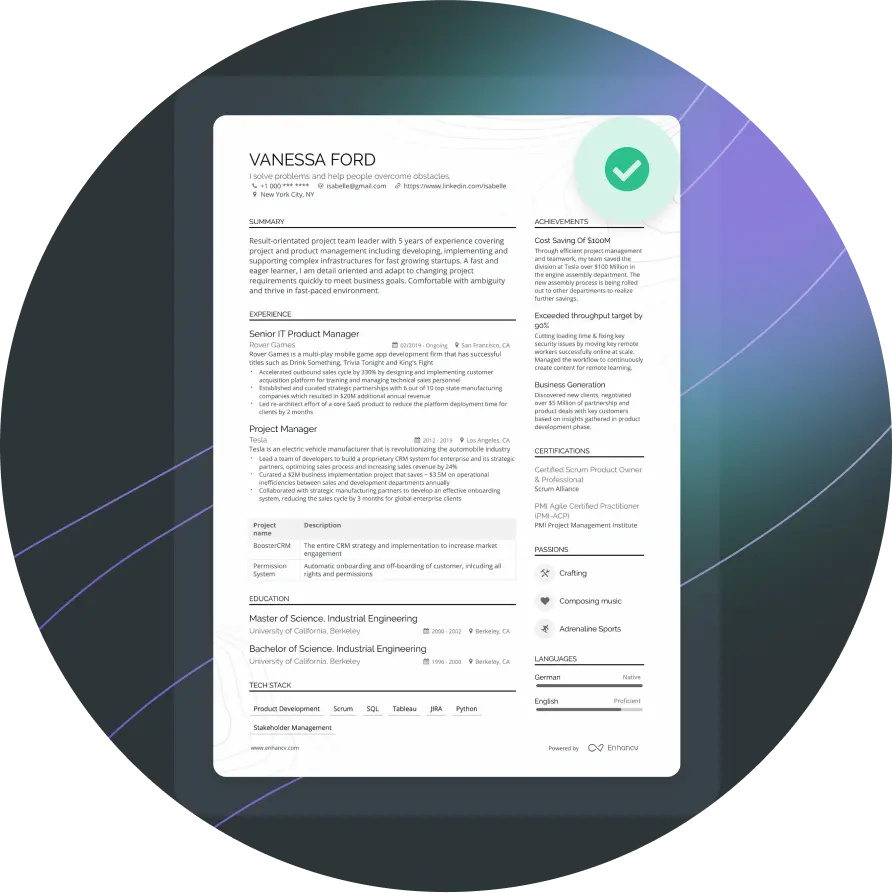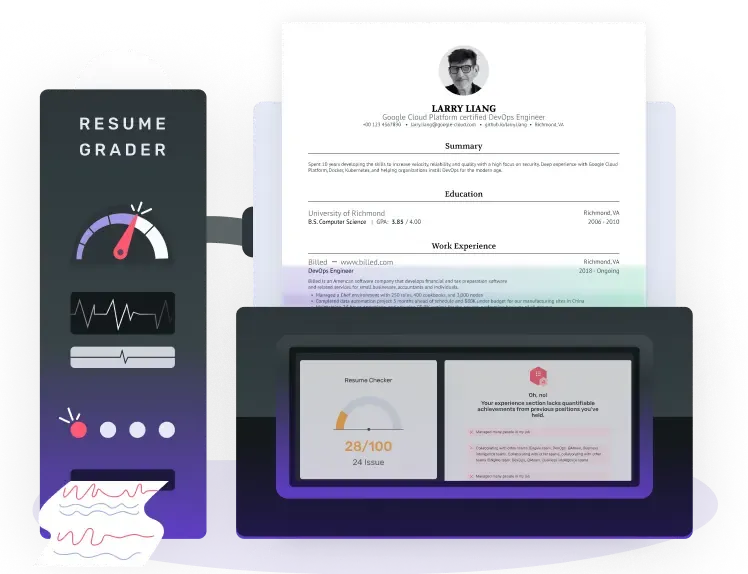
Make sure your resume is free of grammar mistakes and communicates your experience clearly and professionally
Resume Grammar Checker is a free and quick resume checker that helps you catch grammar mistakes and more
Comprehensive grammar and spelling check
Language enhancement
Punctuation review
Consistency check

Enhance your resume with our comprehensive resume improvement toolset
Content Analyzer
The content analyzer not only eliminates spelling errors but also provides practical tips to enhance your content. If you’ve missed out on adding quantifiable achievements, the content analyzer will underline the problematic section. It's backed by insights from thousands of resumes to ensure you're presented in the best light possible.
Referral Link
Sharing your resume with someone who can offer a fresh perspective is a step towards securing that job. Use the referral link to your resume and send it to someone who’s been employed at the same company, or even better, in the same department or position. Connect with ex-employees on LinkedIn or join relevant Facebook Groups. By asking their opinion on your resume, you can gain valuable insights and feedback.
What are the most common grammar mistakes on resumes?
Resumes are critical documents in the job search process, and a single grammar mistake can significantly impact an employer's impression of a candidate. Here are some of the most common grammar mistakes that are often seen on resumes:
- Incorrect Tense Usage: It's important to maintain consistency in verb tenses throughout your resume. As a general rule, use past tense when describing past roles and responsibilities, and present tense for your current job.
- Improper Capitalization: Capitalization errors are common and can appear unprofessional. Only capitalize proper nouns, the first word of a sentence, or job titles when they come before the person’s name.
- Misplaced or Missing Punctuation: Incorrectly placed or missing commas, periods, or other punctuation can affect the clarity and flow of information on a resume.
- Apostrophe Errors: Ensure you’re using apostrophes correctly, especially in contractions and possessive forms. Remember, its (without an apostrophe) is a possessive pronoun, while it's (with an apostrophe) is a contraction of 'it is' or 'it has'.
- Incorrect Use of "Me" vs. "I": A common mistake is incorrect usage of pronouns, particularly "me" and "I". As a rule, "I" is a subject pronoun and "me" is an object pronoun.
- Wrong Spelling: Even with spell check, spelling errors can slip through, especially with homophones (words that sound alike but have different meanings) like "their" vs. "there" vs. "they're" or "your" vs. "you're".
- Subject-Verb Agreement: Ensure that your subject and verb agree in number. For example, "The skills I have acquired over the years makes me..." should be "The skills I have acquired over the years make me...".
- Incorrect Word Usage: Sometimes people use a word that sounds correct but isn't, like "effect" when they mean "affect", or "complement" when they mean "compliment".
- Overuse of Buzzwords: While not a grammatical error, overuse of buzzwords can make your resume seem unoriginal or insincere. Be sure to provide specific examples instead of relying on overused terms.
- Typos in Contact Information: Always double-check the contact information. An error in the phone number or email address can prevent potential employers from reaching you.
Remember, proofreading your resume carefully (preferably by multiple people) is crucial to catching and fixing these mistakes.



